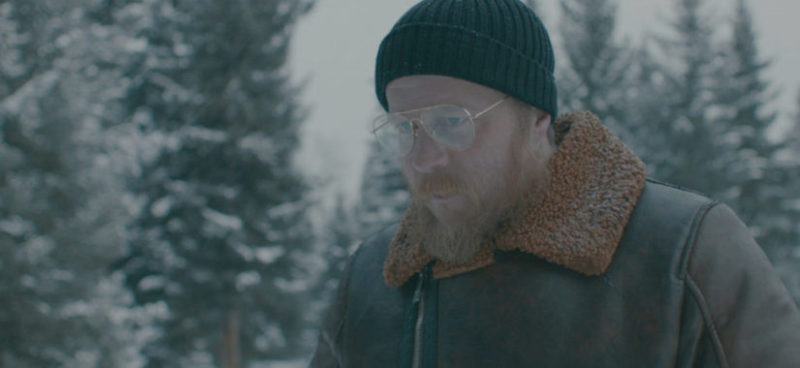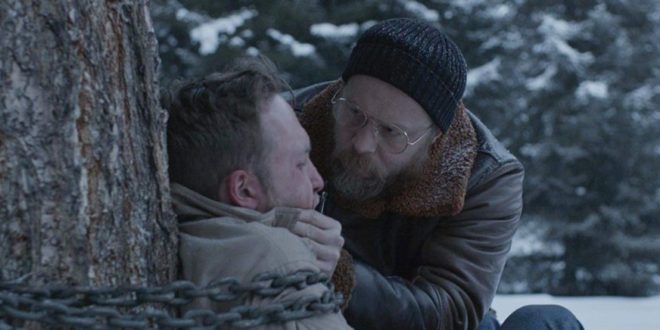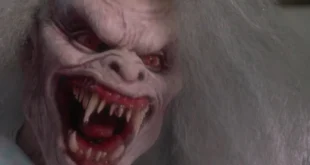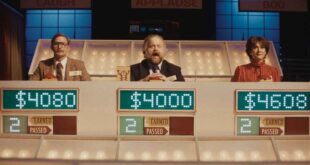The reign of blue and orange color grading in movie-making is slowly fading away. As Hollywood leaves behind the tried-and-true contrasting color scheme, indie filmmakers have picked it up, rung it out, and pinned it up to dry.
Director Brayden DeMorest-Purdy’s (Compulsion 2017) Beyond the Woods wears that rust and denim look well. The wide, white blank page of British Columbia is given reluctant shape by the inkblot trees, the blue sheen of early ‘90s Wranglers, and the fiery burn of a cigarette. Cinematographer Zach Zhao (Apotcalypse 2014) clearly knows a good thing when he’s got it, and in Beyond the Woods, he shoots it as wide as he can, framing the bitter horizon like the kind of paintings they build antique stores around.

It’s to Zhao’s credit that the uniquely frostbitten landscape of Beyond the Woods never wears out its welcome, even as the viewer’s secondhand shivers settle in. It’s a credit, in part because of how many of the film’s 102 minutes you’ll spend staring at the screen, waiting for something to happen.

The trailer, the logline, and even the opening scene tease the audience with a different movie than what Beyond the Woods quickly becomes. Detective Reeves (Broadus Mattison: Riverdale TV series) pushes the photo of a missing person toward a man handcuffed to the business end of his desk. This is Andrew Bennett (Steven Roberts: Tully 2018). Between the recent suicide of his wife and the disappearance of his brother-in-law, he’s had a rough few weeks. The interrogation is heated yet one-sided. Taking on the textbook profile of the quiet neighbor who butchers his entire family, Bennett stays quiet. Reeves wants to know where Jack Rogers (Jeff Evans-Todd: Supernatural TV series) is. He might as well be playing tennis with a brick wall. Bennett pulls a threadbare favorite from the suburban Hannibal Lecter handbook: “The woods can be a very scary place, Detective.”
But Beyond the Woods isn’t a procedural. It’s not about local police getting their chocolate bar brown uniforms dirty on the first murder the town’s seen in years. It’s not even really about a murder. The violence happens almost exclusively when the camera is looking the other way. If, that is, the violence happened at all.

Instead, Beyond the Woods is an non-linear character study of the recently widowed Andrew Bennett. Most of his time is spent alone in his house, framed in the same immovable, widescreen shots as the outside world. He only ever speaks in an idling mumble, sprinkled with pauses that leave an eternity of honest words unsaid. Roberts’ performance as the complicated yet inscrutable Bennett is worth the price of admission, although not quite enough to deserve a 101 minute runtime. He can sit in silence for only so many agonizingly long takes before the furniture-breaking punctuation starts to feel like some kind of relief.
Most of Beyond the Woods is spent in suspension, watching characters wait and drink and blink until the next cut nudges them along. It wouldn’t be a problem if the criminal machinations of the plot were knottier. Despite Bennett insisting the detective hear the whole story, it could’ve easily been told in two cigarettes or less. Or, if the unreliable minds behind them were more compelling; the only sense we have of Bennett’s inner life is a bottle of depression medication and some false memories that confirm this diagnosis. As a psychological thriller, Beyond the Woods doesn’t wander too far away from its case study’s prescription aviators, Roberts’ performance notwithstanding. As a slow burn drama, it never quite heats up to a boil, fizzling out with a clear cut ending that’s still somehow ambiguous.

Shave off 40 minutes and Beyond the Woods could be the kind of Great Northern tone poem that’s best watched under the covers with a warm beverage, contemplating morality as the cigarette smoke looks to be drifting right off the screen.
As it stands, this is a visually impressive feature debut from director and co-writer Brayden DeMorest-Purdy that begs the question: what could he do with a keener eye on pace and a sharper blade in post?
 PopHorror Let's Get Scared
PopHorror Let's Get Scared



